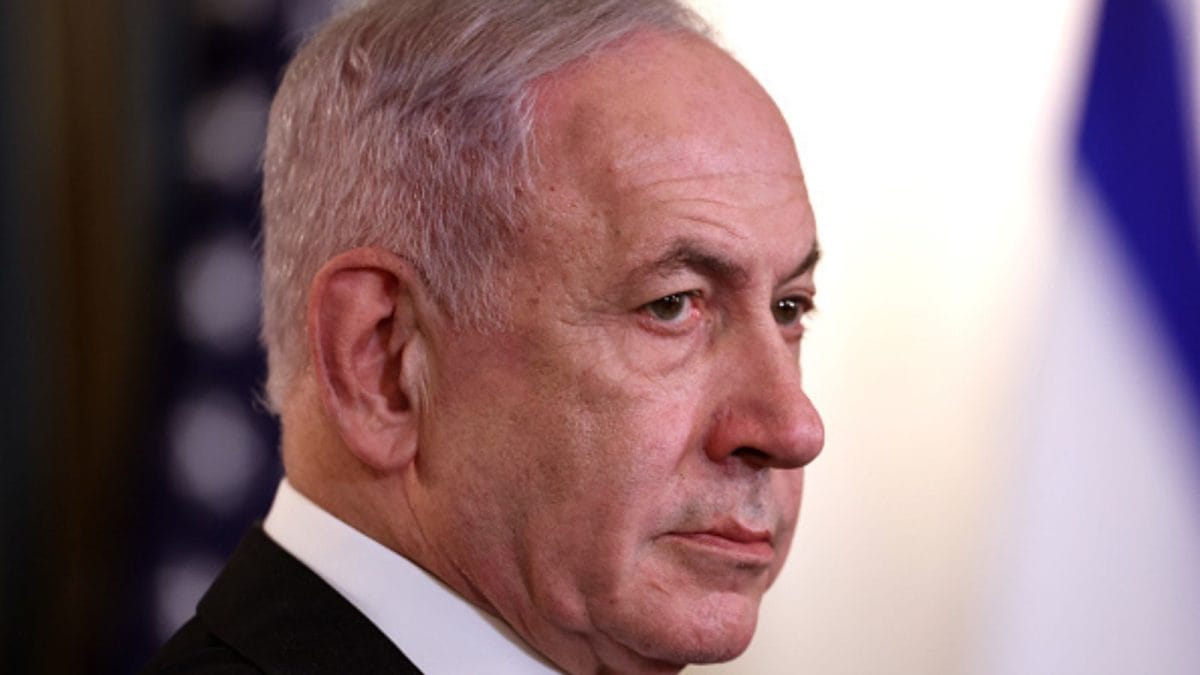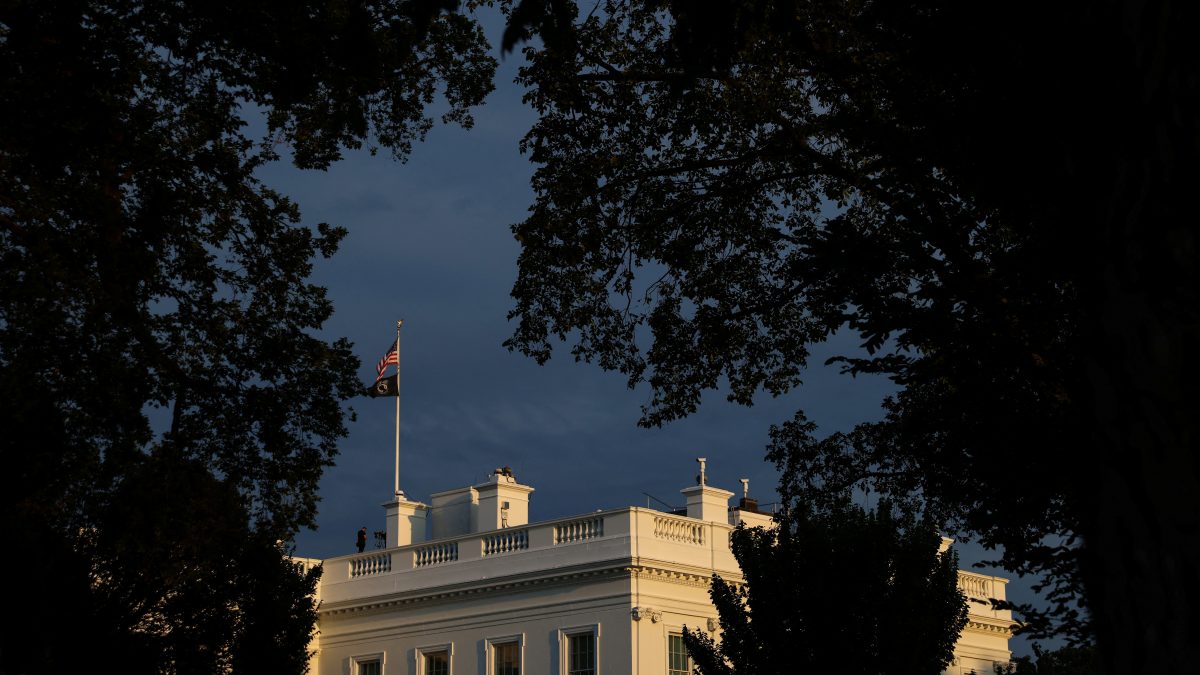Last Updated:
For Netanyahu, the peace plan is both an opportunity and a threat. On one hand, he can present it as a victory: Hamas battered, on the other hand, it risks shattering his coalition

Benjamin Netanyahu shows little sign of embracing risks. His instinct remains survival, not transformation. (Getty Images)
Nearly two years into the Gaza war, the questions dominating political and diplomatic circles remain the same: will it ever end, and under what conditions? Prime Minister Benjamin Netanyahu insists the war is winding down, yet Israel continues military operations, Hamas clings to what remains of its power, and civilians face the weight of a humanitarian crisis.
Recommended Stories
A high-profile peace initiative backed by Washington on September 29 and rolled out as a 20-point roadmap promises to deliver a ceasefire and a pathway to stability. On the surface, the proposal includes: hostage release, Israel will not annex Gaza, Gaza’s reconstruction, and a transitional government to take over the region.
But whether this marks the end of the war—or simply another chapter in its long cycle—depends on a labyrinth of political ambitions, military calculations, and diplomatic fault lines.
The heart of the issue is Netanyahu himself. Let us understand the Israeli leader’s political constraints, his personal ambitions, roadblocks to the peace plan, and how and whether this war will conclude.
What Does The Peace Plan Comprise?
The peace framework rests on several core pillars:
- A phased ceasefire, halting military operations.
- Release of all remaining Israeli hostages in Gaza.
- Gradual Israeli withdrawal tied to the dismantling of Hamas’s armed capabilities.
- A temporary governing council of Palestinian technocrats to administer Gaza.
- Oversight by an international stabilization force and a “Board of Peace” led by high-profile mediators.
- Economic redevelopment zones and a long-term reconstruction effort.
- A conditional roadmap pointing towards Palestinian self-determination, once governance and security benchmarks are met.
In theory, it is a comprehensive package — ending active hostilities, creating a transitional government, and injecting billions in aid to rebuild Gaza. For Israel, it preserves security levers. For Palestinians, it dangles the possibility of eventual statehood. For the United States, it offers a signature diplomatic achievement. Yet, every layer of this plan carries hidden traps.
Roadblock One: Governance Without Clarity
The plan’s central innovation—a technocratic Palestinian committee to govern Gaza—is also its biggest ambiguity. Who chooses its members? How independent will it be? And will ordinary Gazans view it as legitimate or imposed from abroad? Without clear answers, the committee risks being dismissed as a puppet administration, lacking both authority and credibility.
The Palestinian Authority (PA) looms as an unresolved question. The plan suggests Gaza could eventually return under PA control, but only after sweeping reforms. Netanyahu has repeatedly rejected the PA as a viable partner, calling it corrupt and weak. For Palestinians, the exclusion of both Hamas and a credible role for the PA raises fears of being politically orphaned in their own land.
Roadblock Two: Withdrawal Without Guarantees
The framework links Israel’s withdrawal to the dismantling of Hamas. But the mechanics are deliberately vague. Israel is allowed to maintain a “security perimeter” around Gaza and re-enter at will if threats re-emerge. With no fixed deadlines, Israel could effectively remain in control indefinitely, even while claiming to have withdrawn.
For Palestinians, this looks less like liberation and more like a rebranded occupation. For Israel, it keeps leverage in place. For negotiators, it raises the risk that Gaza becomes a limbo zone—neither fully autonomous nor truly under Israeli control, perpetuating the cycle of instability.
Roadblock Three: Disarmament vs. Reality
Central to the plan is the full disarmament of Hamas. On paper, this condition makes sense: Israel will not withdraw while the group retains weapons. In practice, it may be impossible. Hamas views its arsenal as existential, the last defence against Israeli power. To demand complete disarmament is to demand surrender.
Hostage releases are also tied to this process. Every Israeli captive must be freed before Israel completes the withdrawal or releases Palestinian prisoners. The coupling of these demands raises the bar so high that implementation may collapse before it begins.
Roadblock Four: The Missing Peacekeepers
The proposal envisions an International Stabilization Force to secure Gaza and oversee the transition. But who will supply the troops? Which countries will risk sending forces into a volatile battlefield, potentially clashing with both Hamas remnants and Israeli forces? Without clear commitments, the force risks existing only on paper.
Arab states have signalled willingness to fund reconstruction, but far fewer are prepared to deploy soldiers into Gaza’s streets. Without a credible peacekeeping presence, the plan’s enforcement mechanisms look fragile.
Roadblock Five: The Question Of Statehood
The roadmap dangles a conditional pathway to Palestinian statehood — “when governance and security benchmarks are met.” But no guarantees, no timelines, and no firm recognition exist. For many Palestinians, this reads as yet another deferral, a mirage always pushed further into the distance.
Netanyahu has already stated bluntly that he does not support a sovereign Palestinian state arising from this deal. This contradiction strikes at the heart of the plan. A process that offers Palestinians no clear political horizon may win a ceasefire but cannot deliver lasting peace.
What Is Netanyahu’s Balancing Act?
For Netanyahu, the peace plan is both an opportunity and a threat. On one hand, he can present it as a victory: Hamas battered, hostage home, international recognition secured. It offers him cover to claim he has delivered security while ending a costly war.
On the other hand, the deal risks shattering his ruling coalition. Far-right ministers denounce any ceasefire as surrender and openly threaten to abandon the government if Israel withdraws. Religious-nationalist factions push for further expansion of settlements in the West Bank, not concessions to Palestinians.
Netanyahu is already politically weakened, under investigation, and facing widespread criticism over his handling of the war. He needs the perception of victory more than the substance of peace. This means he may embrace the plan publicly while hollowing it out in practice—signing on to international applause, then ensuring implementation stalls.
What Is The Role Of Hamas and Palestinian Divisions?
Hamas is militarily weakened but not eliminated. Its leadership faces impossible choices: accept a deal that demands disarmament and political exclusion, or reject it and risk complete destruction. Either path is fraught. Internal splits within the group could deepen, with hardliners refusing to bow and pragmatists seeking survival.
Ordinary Palestinians in Gaza face different concerns: survival, dignity, and freedom. Many view the imposed governance structures with suspicion. The PA, already deeply unpopular, lacks the legitimacy to step in. Without grassroots buy-in, even a well-funded reconstruction effort could fail to take root.
What Is Trump’s Calculus?
For the United States, the Gaza plan is as much about global optics as Middle East peace. A war dragging into its third year undermines US credibility, destabilises regional allies, and fuels humanitarian outrage. The peace package is designed to showcase American leadership, reassert influence, and secure a headline win on the global stage.
By putting his name directly on the framework, Trump has tied his political capital to its success. But the deal is crafted to protect US interests: it pressures Arab states to fund Gaza’s reconstruction, allows Israel to retain security dominance, and defers Palestinian statehood indefinitely. The result is a blueprint that looks bold but avoids forcing Israel into concessions its government cannot accept.
Will The Gaza War Really End?
The short answer is probably not in the way the world imagines it. Netanyahu may declare victory, sign on to the framework, and pull back troops from parts of Gaza. Hostages may return, reconstruction may begin, and international partners may hail a turning point. But beneath the surface, Israel will retain security levers, Palestinian governance will remain contested, and the deeper political conflict will remain unresolved.
The plan may pause the war, but it does not settle it. Hamas may regroup underground. The far right in Israel may force new elections. Palestinians may resist a future stripped of clear sovereignty. In this sense, the “end” of the Gaza war could simply be a shift to a quieter, more fragile stalemate—until the next eruption.
Will It Get Repeated?
History in this conflict is unkind to ambitious peace plans. Each new proposal promises to break the cycle of violence, yet most collapse under the weight of mistrust, political survival, and competing ambitions. Netanyahu’s acceptance of the current framework may prove no different.
Ending a war requires not just a military pause but political courage—willingness to take risks, confront allies, and promise dignity to the other side. At present, Netanyahu shows little sign of embracing those risks. His instinct remains survival, not transformation.
For Palestinians, the promise of eventual statehood without guarantees is a bitter pill. For Israelis, the fear of Hamas rearming justifies holding onto security controls indefinitely. For mediators, the absence of enforceable commitments undermines credibility.
The war may be declared over in the months ahead. But whether peace takes root, or whether Gaza becomes yet another chapter in a decades-long cycle, remains deeply uncertain.
About the Author
Shilpy Bisht, Deputy News Editor at News18, writes and edits national, world and business stories. She started off as a print journalist, and then transitioned to online, in her 12 years of experience. Her prev…Read More
Shilpy Bisht, Deputy News Editor at News18, writes and edits national, world and business stories. She started off as a print journalist, and then transitioned to online, in her 12 years of experience. Her prev… Read More
October 01, 2025, 10:45 IST
Loading comments…
Scan the QR code to download the News18 app and enjoy a seamless news experience anytime, anywhere



)